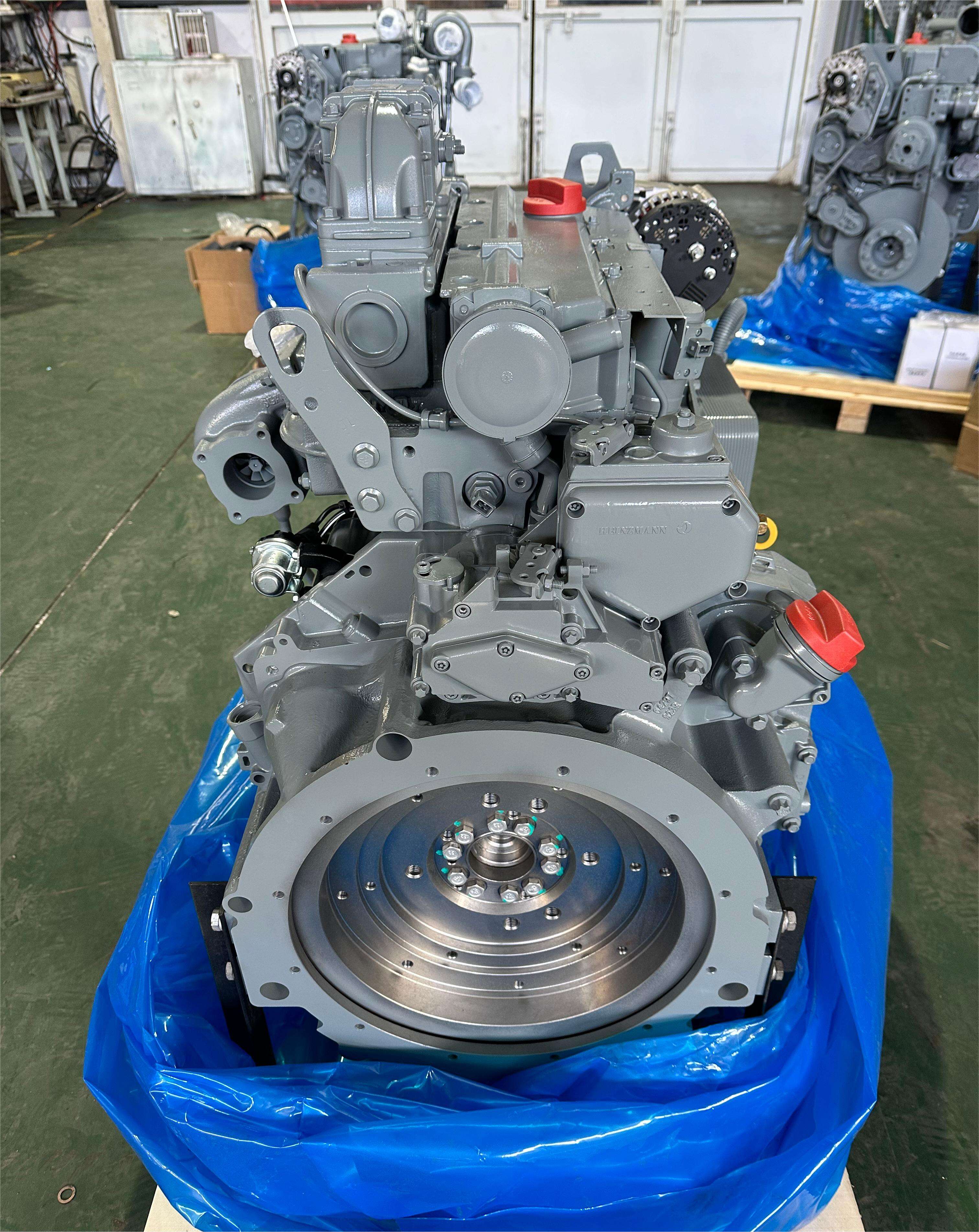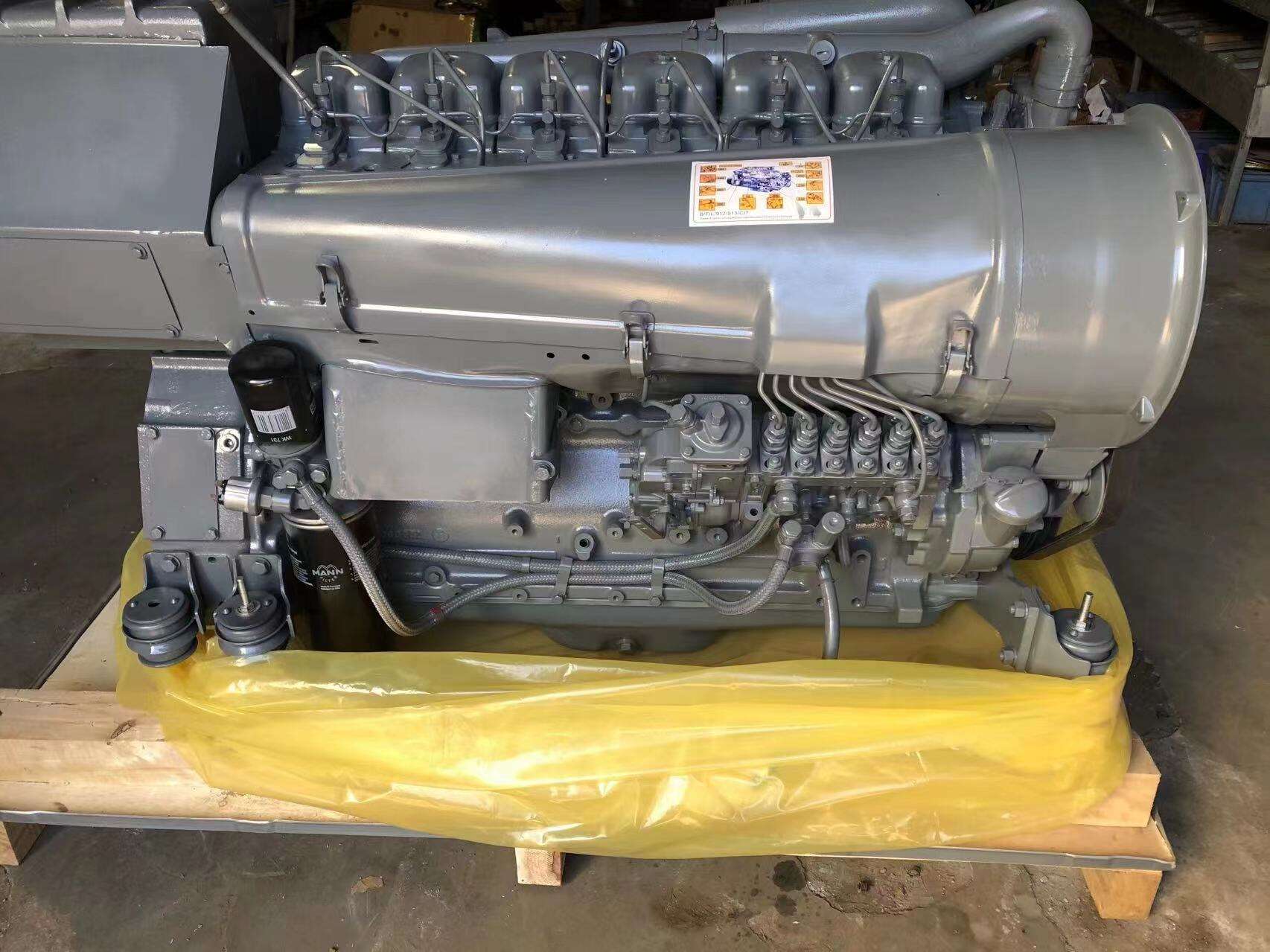Comprehensive Analysis of Industrial Engine Giants
The industrial engine market has long been dominated by two major players - Deutz and Kubota. Each manufacturer brings unique strengths and characteristics to their power solutions, making the Deutz engine vs Kubota comparison a crucial decision point for many businesses. Understanding the distinct features, performance metrics, and long-term operational costs of these engines can significantly impact your equipment's efficiency and bottom line.
Whether you're managing a construction fleet, agricultural operation, or industrial facility, choosing between these two renowned manufacturers requires careful consideration of multiple factors. Let's dive deep into what sets these engines apart and help you make an informed decision for your specific needs.
Engine Performance and Power Output
Horsepower and Torque Specifications
Deutz engines are renowned for their robust power delivery, typically offering higher horsepower ratings in their comparable size classes. Their diesel engines often provide superior torque at lower RPMs, making them particularly effective for heavy-duty applications and demanding work environments. Most Deutz models in the mid-range category deliver between 160-400 horsepower, with exceptional torque curves that maintain steady power output even under varying loads.
Kubota engines, while generally offering slightly lower maximum power outputs, excel in consistent performance and reliability. Their power bands typically range from 100-300 horsepower in similar size categories, with carefully engineered torque curves that prioritize steady, dependable operation. This makes them especially suitable for applications requiring consistent power delivery rather than peak performance demands.
Power-to-Weight Ratio Benefits
When comparing Deutz engine vs Kubota designs, the power-to-weight ratio becomes a crucial differentiator. Deutz typically achieves more favorable ratios through advanced materials and compact design principles, resulting in engines that deliver more power per pound of weight. This characteristic makes them particularly attractive for applications where weight constraints are important, such as mobile equipment and specialized machinery.
Kubota engines, while slightly heavier in relation to their power output, offer advantages in terms of structural durability and heat management. Their robust construction often translates to extended service life and improved reliability in challenging operating conditions.

Fuel Efficiency and Consumption Patterns
Operational Fuel Economy
Deutz engines have made significant strides in fuel efficiency, incorporating advanced injection systems and combustion chamber designs. Their latest models typically demonstrate fuel consumption rates 5-15% lower than previous generations, with some units achieving exceptional efficiency under optimal operating conditions. The manufacturer's focus on reducing operational costs through improved fuel economy has resulted in sophisticated engine management systems that optimize fuel usage based on load demands.
Kubota's approach to fuel efficiency emphasizes consistent, predictable consumption patterns. Their engines often show more stable fuel usage across different operating conditions, making fuel costs more predictable for operational planning. While they may not always match Deutz's peak efficiency numbers, Kubota engines frequently deliver better average fuel economy in real-world applications.
Environmental Impact and Emissions
Both manufacturers have invested heavily in meeting and exceeding environmental regulations. Deutz has implemented advanced exhaust gas treatment systems and refined their combustion processes to minimize emissions while maintaining performance. Their latest engines feature sophisticated SCR (Selective Catalytic Reduction) technology and particulate filters that effectively reduce NOx and particulate matter emissions.
Kubota's environmental approach focuses on clean-burning engine designs that require less complex emission control systems. This simplified approach often results in lower maintenance requirements while still meeting strict emission standards. Their engines typically produce lower baseline emissions, reducing the need for extensive aftertreatment systems.
Maintenance and Service Requirements
Regular Maintenance Schedules
Deutz engines typically require maintenance intervals between 250-500 operating hours, depending on the model and application. Their service requirements often include more sophisticated diagnostic procedures and specialized tools, reflecting the advanced technology incorporated into their designs. However, these maintenance procedures generally result in optimal performance and extended engine life when properly followed.
Kubota engines are known for their straightforward maintenance requirements, with service intervals commonly ranging from 300-600 operating hours. Their simpler design philosophy translates to more straightforward maintenance procedures that can often be performed with standard tools, potentially reducing overall service costs.
Parts Availability and Costs
The availability and cost of replacement parts represent significant factors in the Deutz engine vs Kubota comparison. Deutz maintains an extensive global parts network, though their components typically command premium prices reflecting their specialized nature and manufacturing quality. The investment in original Deutz parts often pays off through enhanced performance and reliability.
Kubota's parts distribution system is equally comprehensive, with generally lower-priced components due to their more standardized designs and higher production volumes. This can result in reduced long-term maintenance costs, particularly for operations with multiple units requiring regular service.
Long-term Cost Analysis
Initial Investment Considerations
Deutz engines typically require a higher initial investment, reflecting their advanced technology and performance capabilities. However, this premium is often offset by lower operating costs and extended service life in demanding applications. The higher acquisition cost should be evaluated against the potential performance benefits and efficiency gains in specific use cases.
Kubota engines generally offer more competitive initial pricing, making them attractive for budget-conscious buyers. Their reputation for reliability and simpler maintenance requirements can make them more cost-effective for applications that don't require the maximum power output or advanced features of Deutz units.
Total Cost of Ownership
When calculating total ownership costs, factors beyond the purchase price become critical. Deutz engines often show advantages in fuel efficiency and performance-related savings, potentially offsetting their higher initial cost over time. Their durability in heavy-duty applications can result in longer service life, spreading the investment over more operating hours.
Kubota engines frequently demonstrate lower total ownership costs in applications matching their design parameters, particularly when considering their more affordable maintenance requirements and parts costs. Their consistent performance and reliability can result in fewer unexpected expenses and more predictable operating costs.
Frequently Asked Questions
Which engine brand offers better cold-weather performance?
Deutz engines typically demonstrate superior cold-weather starting capabilities due to their advanced glow plug systems and cold-start technology. However, Kubota engines are also reliable in cold conditions when properly maintained and using appropriate cold-weather fluids.
How do warranty coverage and support compare between the brands?
Both manufacturers offer comprehensive warranty coverage, typically ranging from 2-3 years. Deutz generally provides more extensive coverage for industrial applications, while Kubota offers straightforward warranty terms with excellent dealer support networks.
What are the typical engine life expectancies?
With proper maintenance, both Deutz and Kubota engines can exceed 10,000 operating hours. Deutz engines often achieve 12,000-15,000 hours in heavy-duty applications, while Kubota engines typically deliver 10,000-12,000 hours of reliable service.

